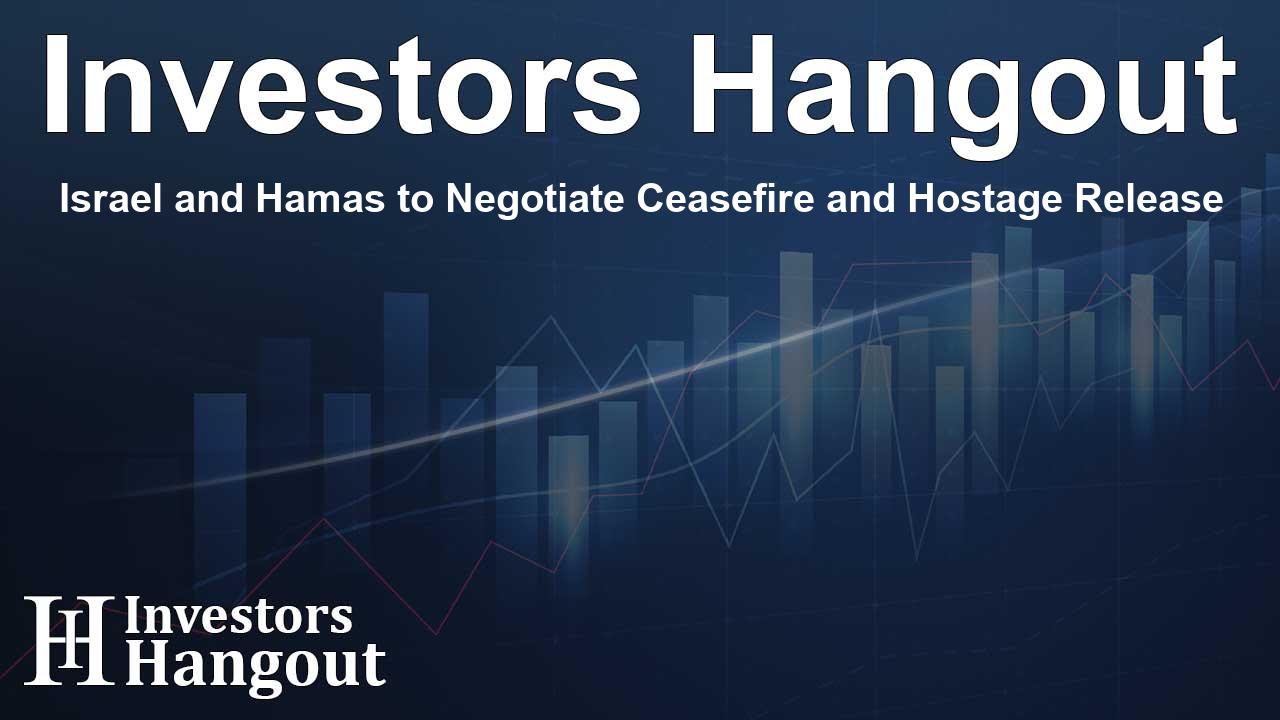Israel and Hamas to Negotiate Ceasefire and Hostage Release

Israel and Hamas Begin Ceasefire Negotiations
Israel has unveiled its intentions to negotiate with Hamas, focusing on establishing a durable ceasefire in Gaza and facilitating the release of additional hostages. The atmosphere surrounding this development is critical as both parties aim to chart a path toward peace.
Key Developments in the Negotiations
Gideon Sa'ar, Israel's foreign minister, made an important announcement regarding these negotiations, indicating they are poised to initiate talks. The discussions are centered around hammering out a permanent ceasefire and ensuring the remaining Israeli hostages held captive by Hamas are freed. Recently, Hamas also extended a gesture by agreeing to return the remains of four deceased hostages.
The Terms of the Ceasefire
In a significant reciprocal agreement, Israel has noted it will free all Palestinian women and minors who have been detained in Gaza since October this year, provided they haven’t been directly involved in the conflict. This exchange illustrates a move towards de-escalating tensions and advancing humanitarian efforts.
Political Landscape and Challenges
The Israeli security cabinet has approved this second phase of the ceasefire deal, though it has been delayed by two weeks compared to the initial timeline. With the end of the current ceasefire phase approaching, political sensitivities have arisen within Israel, particularly from Prime Minister Benjamin Netanyahu's right-wing coalition, which exhibits reservations about concluding the war without fully dismantling Hamas.
The Global Response
Amid these negotiations, President Trump has introduced controversial proposals, suggesting U.S. intervention in Gaza aimed at redeveloping the region, which has sparked significant backlash from numerous world leaders. The notion of displacing millions of Palestinians has drawn direct rejections from various political figures, raising alarms about the feasibility and ethics surrounding such a strategy.
Impact on Energy Markets
As international dialogues unfold, energy markets are also reacting. The price of West Texas Intermediate crude has seen a slight increase, reflecting the global concern over geopolitical events impacting oil prices. Meanwhile, Brent crude's minor decline indicates a complex interplay of factors affecting global energy, with U.S. energy stocks also experiencing mixed activity as revealed by the trading performance of significant entities such as the Energy Select Sector SPDR Fund (XLE) and major oil companies like Exxon Mobil (XOM) and Chevron (CVX).
Future Implications
The outcome of these negotiations holds potential ramifications not only for Israel and Hamas but also for the broader Middle Eastern geopolitical landscape. A successful dialogue could pave the way for longer-term peace efforts that address the underlying issues contributing to ongoing conflict in the region. Consequently, local and international stakeholders are closely monitoring this development to gauge its potential impacts.
Frequently Asked Questions
What are the main goals of the negotiations between Israel and Hamas?
The primary goals are to establish a lasting ceasefire in Gaza and secure the release of the remaining Israeli hostages held by Hamas.
What concessions is Israel making in return?
Israel has agreed to release all Palestinian women and minors detained in Gaza since October 2023, who were not directly associated with the conflict.
Why is the political response in Israel significant?
The political response is nuanced, as members of Prime Minister Netanyahu's right-wing alliance express concerns regarding ending the war without fully dismantling Hamas, a critical factor in Israeli internal politics.
How has the U.S. government responded to the situation?
The U.S. has proposed plans to take over the Gaza Strip for redevelopment purposes, which has faced widespread criticism from global leaders and communities alike.
What is the current state of energy prices due to these negotiations?
Energy prices, especially crude oil commodities, are fluctuating as investors react to geopolitical developments, indicating a possible impact on global supply concerns linked to the negotiations.
About The Author
Contact Evelyn Baker privately here. Or send an email with ATTN: Evelyn Baker as the subject to contact@investorshangout.com.
About Investors Hangout
Investors Hangout is a leading online stock forum for financial discussion and learning, offering a wide range of free tools and resources. It draws in traders of all levels, who exchange market knowledge, investigate trading tactics, and keep an eye on industry developments in real time. Featuring financial articles, stock message boards, quotes, charts, company profiles, and live news updates. Through cooperative learning and a wealth of informational resources, it helps users from novices creating their first portfolios to experts honing their techniques. Join Investors Hangout today: https://investorshangout.com/
The content of this article is based on factual, publicly available information and does not represent legal, financial, or investment advice. Investors Hangout does not offer financial advice, and the author is not a licensed financial advisor. Consult a qualified advisor before making any financial or investment decisions based on this article. This article should not be considered advice to purchase, sell, or hold any securities or other investments. If any of the material provided here is inaccurate, please contact us for corrections.
